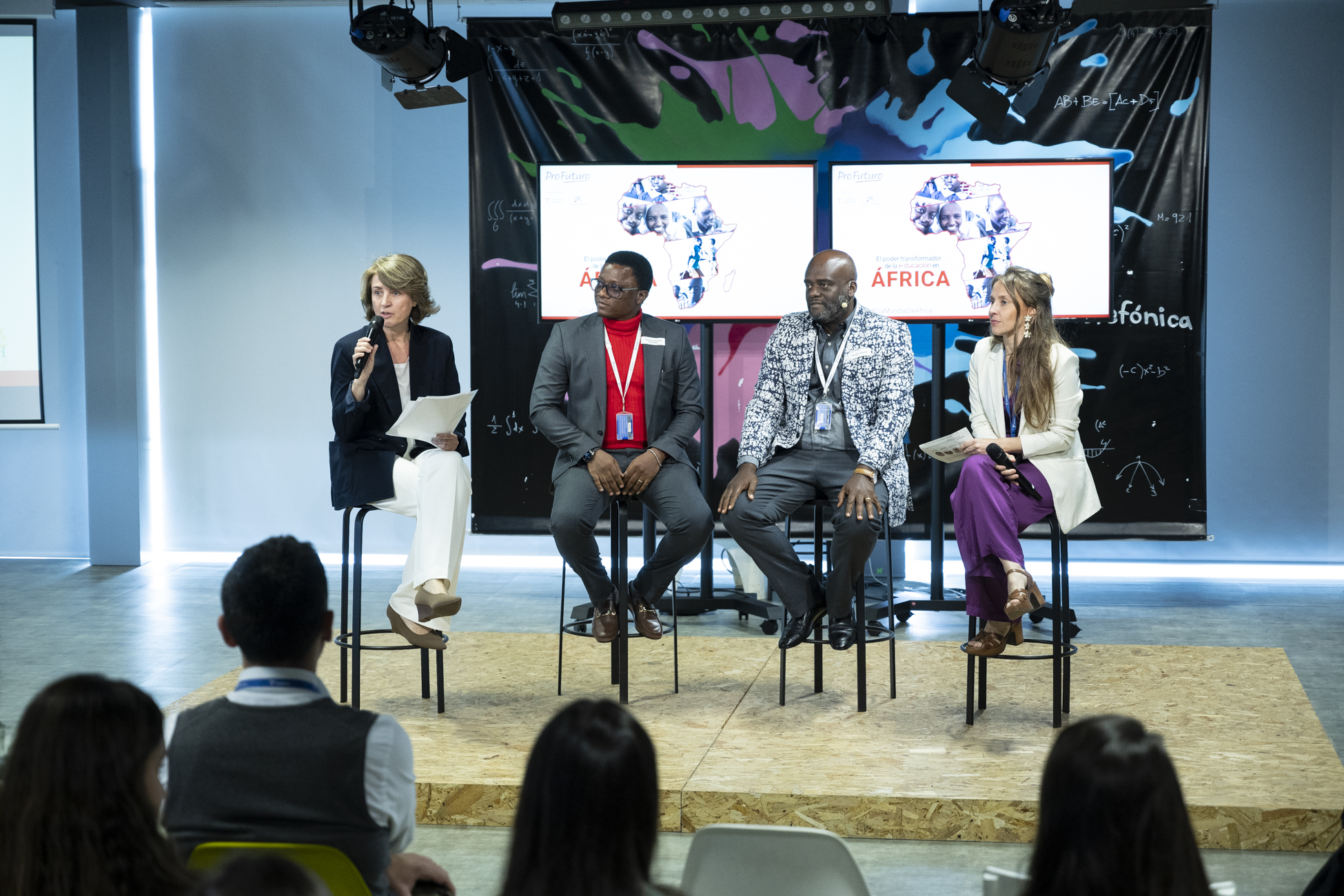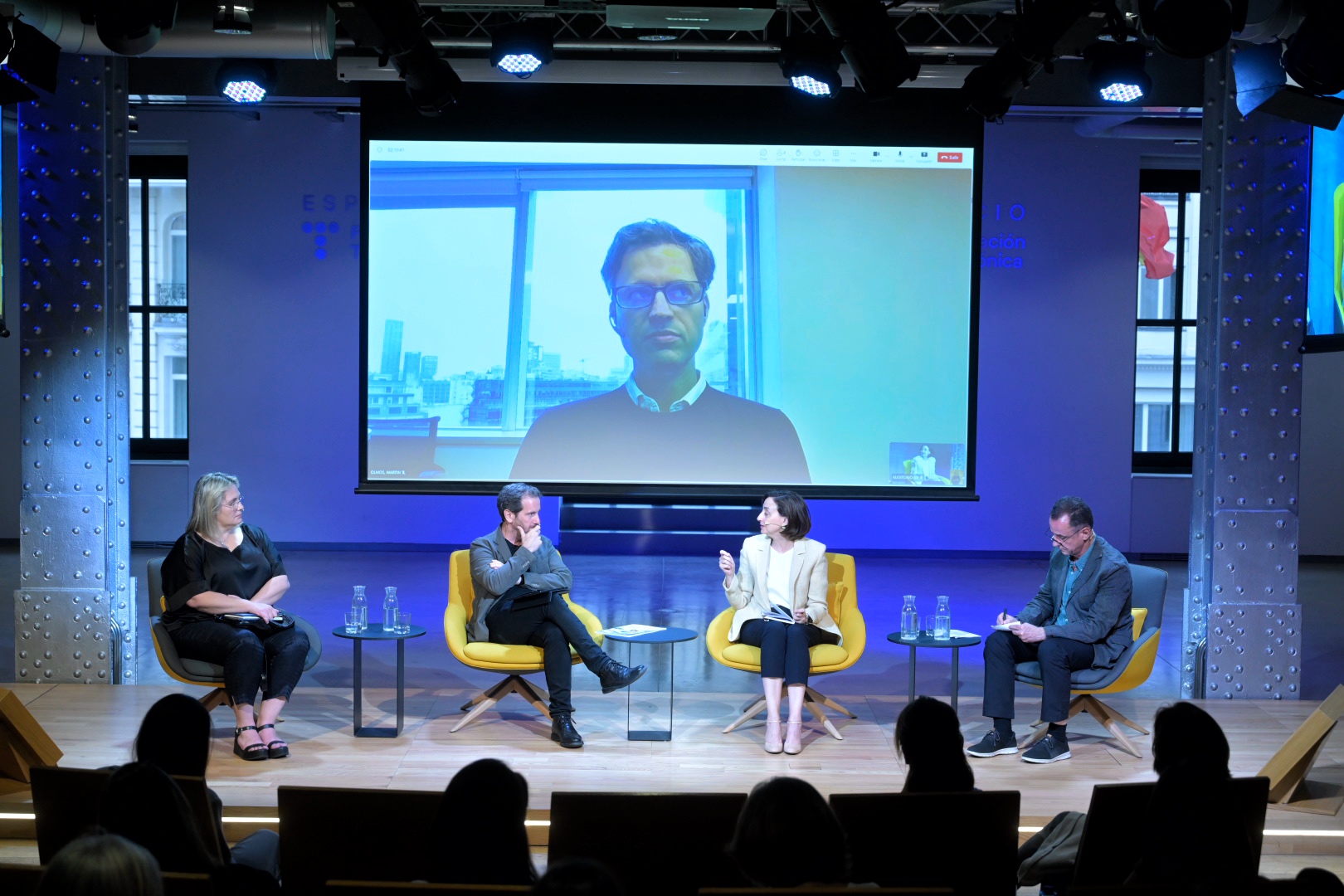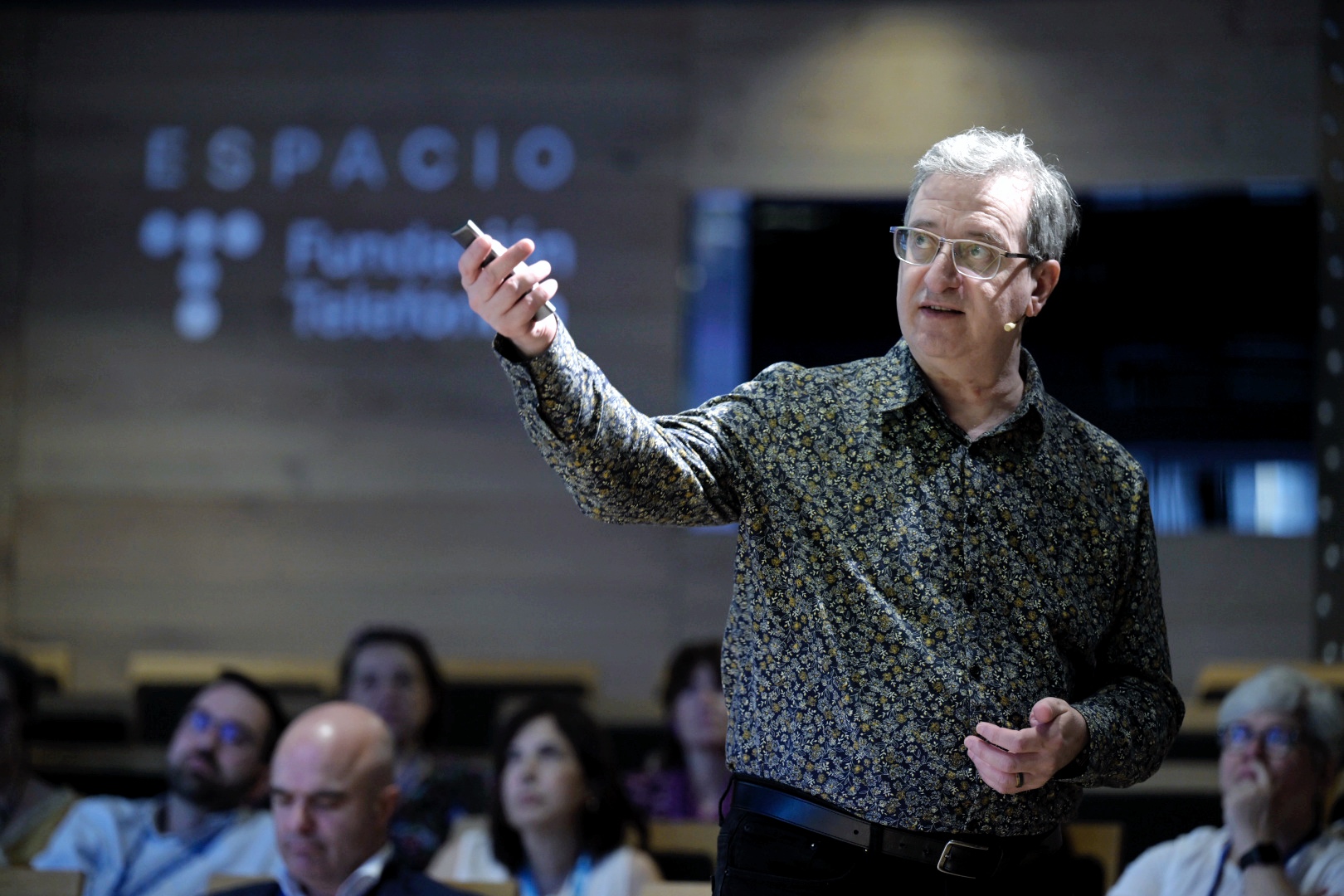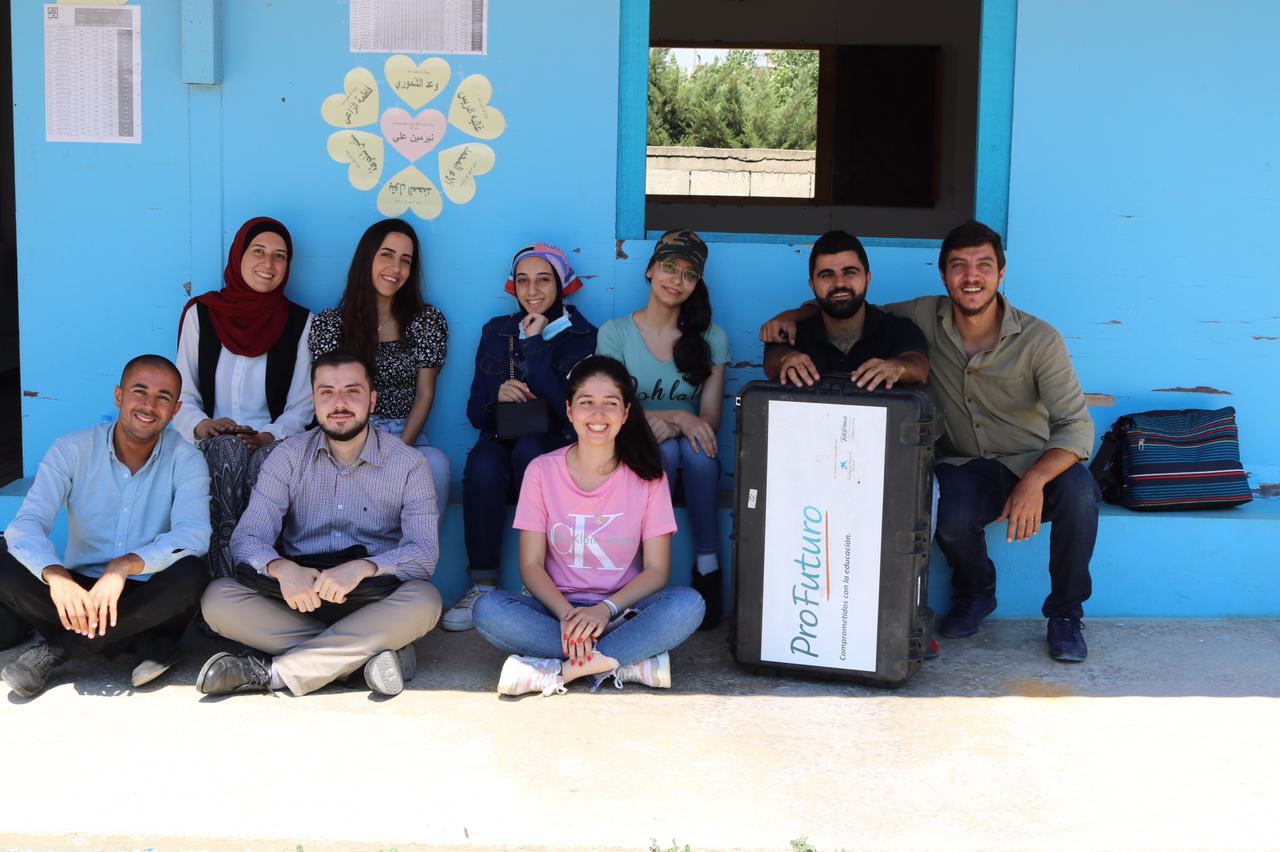Happy #WorldAfricaDay!
Today, 25 May, at ProFuturo we dedicate all our content to celebrate World Africa Day.
The continent of young people, full of wealth and people working to change their futures. The continent that embraced our project from the beginning. Africa is the origin of everything!
Thank you very much for these 7 years.
Social media content:
💙¡Feeeeliiz #DíaMundialdeÁfrica! 🌍
— @Profuturo_ (@ProFuturo_) May 25, 2023
El continente que abrazó nuestro proyecto desde el principio. ¡#África es el origen de todo!
GRACIAS 🙏
👉 https://t.co/xt3NNFEw1o#SemanadeÁfrica #EducarTransforma@fundacionTef @FundlaCaixa
Our digital education programme, ProFuturo, was created by the Telefónica Foundation and the “La Caixa” Foundation in 2016, the year in which it also began its journey in Angola with a first pilot in nine schools in Luena. For this reason, Africa is a very special place for ProFuturo and for yet another year it joins in the commemoration of Africa Day, today 25 May, the date that celebrates the creation of the African Union (AU) in 1963.
ProFuturo launches #AfricaWeek from 22 to 26 May, with special activities and content to raise awareness of developments in Africa, the impact generated, and the challenges to be met in the coming years. Nigeria is the protagonist of this year’s agenda of activities, and for the first time and in an exceptional way, ProFuturo welcomes these days in Madrid three members of the Kukah Centre, a Nigerian policy research institute that promotes interfaith dialogue and is an implementation partner of the Spanish education programme in this West African country, the most populous on the continent.
It was in 2017 when ProFuturo and Kukah Centre signed a collaboration agreement to improve the quality of education in particularly vulnerable environments. Today they work together in 13 regions and, to date, have reached more than 63,500 children and trained more than 900 teachers.
On Monday 22nd, we held an event where we spoke with representatives from the Kukah Centre and they told us about the impact and challenges of the ProFuturo programme in their region. The meeting was attended by representatives of the different entities: on behalf of ProFuturo, Magdalena Brier, Managing Director, and Virginia Chinchilla, Head of ProFuturo in Nigeria. And from Nigeria, Lawson Osezuwa Eselebor, Program Manager of the Kukah Centre for ProFuturo, Michael Ibrahim Magaji, Lead Consultant, and Mathew Shom Yari, Accountant.
¡Ayer recibimos una visita especial! 🌍
— @Profuturo_ (@ProFuturo_) May 23, 2023
Nuestro socio de Nigeria, @KukahCentre, vino a contarnos el impacto y los retos del programa educativo de #ProFuturo en su región.
👉¿Queréis conocer cuáles son? Os lo contamos en la #SemanadeÁfrica #DíaMundialdeÁfrica #EducarTransforma pic.twitter.com/arESVbQVlS
In an exciting and revealing talk, we had the opportunity to take stock of the six years of collaboration and to look at the educational situation in Nigeria from a qualitative perspective. During this unique encounter, the difficult reality some regions in the country face was revealed, as well as the barriers faced by both children and teachers.
One of the issues that struck a deep chord with the audience was the gender gap, a particularly sensitive challenge. Girls face widespread discrimination as they are culturally not fully integrated into educational communities.
Another issue that deserves special attention is terrorism, which poses a threat to the normal development of children and young people in several regions and has a significant impact on the education system.
The most vulnerable have lost their homes and lack the resources to ensure a decent education. In this context, access to technology has become a substantial improvement for these children, most of whom have experienced their first contact with a device in the ProFuturo educational programme. Therefore, the availability of technological equipment is an opportunity.
During the talk, the crucial role of the government in efforts to improve education in Nigeria was emphasised, particularly in relation to digital education. Crucial needs were stressed, such as the electricity supply and security in schools, which the government is actively addressing. In addition, the importance of teacher training and knowledge transfer was highlighted, as well as collaboration between the government, families and the teaching community. State governments were urged to play a more active role, as they are closer to communities and can drive the uptake of digital education.
The implementation of the ProFuturo programme has had a positive impact on families, children and teachers. In many public schools in vulnerable areas, the introduction of the ProFuturo programme has led to a significant increase in student enrolment. This is because families have been attracted by the opportunity to access technology and new forms of learning, such as the use of technology and STEM activities. Children come home excited about what they are learning and this generates curiosity in their parents, who may even visit the school to see the innovations first hand.
In addition, the adoption of technology has improved the quality of education in war-torn or displaced communities where state-funded schools do not have access to the same quality of content. The programme has increased enrolment, sparked community interest, and teachers are eager to transfer to schools where ProFuturo is implemented, as they recognise that it provides them with new skills.
The programme has demonstrated significant growth in enrollment and widespread adoption by schools, indicating a way forward to an even more successful phase. With the aim of completing a full six-year cycle of students who have used the tablets and the curriculum, the results are expected to be clear and strong.
Magdalena Brier concluded with a reflection: “The greatest satisfaction for those of us who are part of ProFuturo is to see the impact that the programme has on these children who deserve the best education in the world for the sake of their future.”
ProFuturo brings us closer to the educational reality of Nigeria on the occasion of Africa Day
ProFuturo has been implemented in Nigeria since 2017, and thanks to the alliance with Kukah Centre, more than 63,500 children have already benefited and more than 930 teachers have been trained in digital skills. The programme has been implemented in 123 educational centres in 13 states: Adamawa, Bauchi, Benue, Borno, Korno, Kaduna, Kano, Katsina, Kebbi, Nasarawa, Niger, Plateau, Sokoto and Taraba.
Also noteworthy is the collaboration in the country with two other important partners: Teach For Nigeria and UNHCR.
It is a country with particular challenges for education – according to UNICEF, one out of every five children is outside the school system -, which is why cooperation projects such as those of ProFuturo and Kukah Centre are essential to promote schooling and educational quality in such vulnerable environments. The programme’s introduction of technology in the classroom makes it more appealing for children to go to school, as evidenced by the evidence ProFuturo has gathered over the past few years from its research and evaluations of the results of its intervention.
Africa is the birthplace of ProFuturo, and seven years later, it is helping to bridge the educational, digital and social divides in 22 countries on the continent. In 2022, it arrived in Ghana through NASCO Feeding Minds and in Namibia, the Democratic Republic of Congo, and Zambia as part of the UNESCO Global Teacher Campus. Since 2023, the programme has also been implemented in Morocco thanks to a partnership agreement with the BMCE BANK Foundation.






